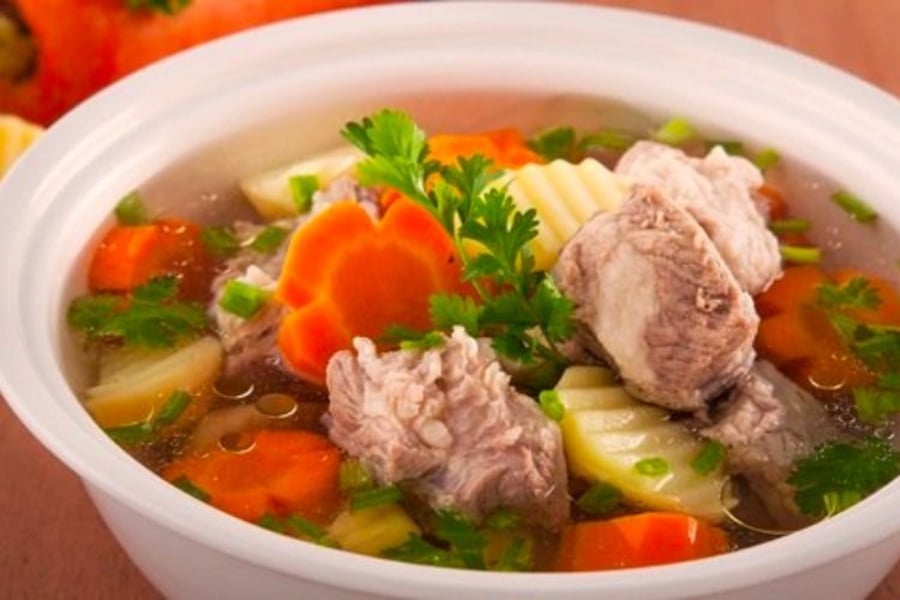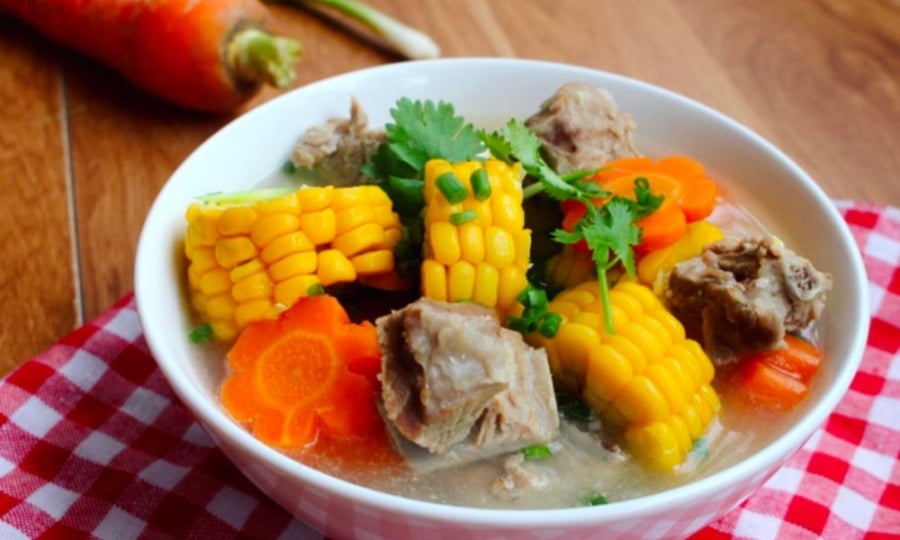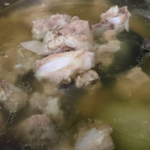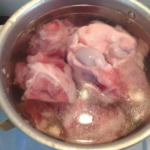Ingredients for Pork Bone Vegetable Soup
Pork bones: 400g
Beetroot: 2 small beets
Chayote: 1 piece
Carrot: 1 piece
Potatoes: 2 pieces
Scallions: 2-3 cloves
Cilantro: 3-4 sprigs
Seasonings: broth mix, salt, and MSG (optional)

How to Make a Clear Bone Broth
How to Cook Pork Bone Vegetable Soup
Step 1: Prepare the ingredients
Ask your butcher to cut the pork bones into bite-sized pieces. When you get home, blanch the bones in boiling water to remove any impurities and unpleasant odors. Peel and cut the vegetables into bite-sized pieces, then rinse them. Chop the scallions and cilantro finely.
Step 2: Simmer the bones
Place the bones in a pot with a little broth mix and add water. Bring to a boil and skim off any foam that rises to the surface. Reduce the heat and simmer for at least 45 minutes, or until the bones are tender and the broth is flavorful. You can use a pressure cooker to save time.
Step 3: Cook the vegetables
Once the bones are tender, add the vegetables and continue cooking for 20 minutes, or until the vegetables are tender. Season to taste and add the chopped scallions and cilantro. Turn off the heat.
Step 4: Serve
Ladle the hot soup into bowls and enjoy! This nutritious and colorful soup is a wonderful addition to any family meal.

Tip for a Clear Bone Broth
After purchasing the pork bones, wash them thoroughly with salt or a little baking soda. Cut the bones into bite-sized pieces. Soak the bones in warm water for about an hour, changing the water every 15 minutes. This process helps remove blood and impurities, reducing any unpleasant odors. After soaking, place the bones in a pot with cold water, fresh ginger, scallions, and cooking wine. Bring to a boil and then turn off the heat.
Drain the bones and rinse them with cold water to ensure they are free of any remaining impurities and to further reduce any strong flavors. Properly seasoning the broth is crucial. Many people add salt at the beginning when sautéing the bones. However, adding salt too early can dry out the meat and affect its texture. Instead, it is best to season with salt towards the end of cooking, ideally about 10 minutes before turning off the heat.
According to experienced chefs, adding salt too early when simmering bones can cause the meat to release its natural juices, resulting in drier and less flavorful meat. The heat traps the aromas inside the meat, affecting the overall taste of the dish.



































